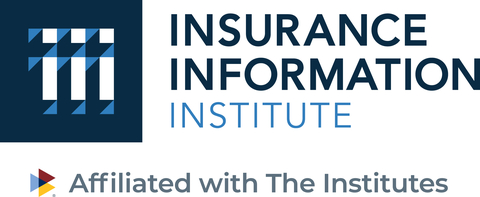Triple-I Offers Tips on Celebrating July 4 Safely
Triple-I Offers Tips on Celebrating July 4 Safely
NEW YORK--(BUSINESS WIRE)--Fireworks displays, outdoor cooking, and pool parties are traditional ways to mark Independence Day yet these activities must be conducted in a safe manner, according to the Insurance Information Institute (Triple-I).
To make sure everyone celebrates safely, Triple-I notes there are risks, as well as insurance implications, to consider as Tuesday, July 4, nears:
FIREWORKS: Firecrackers, bottle rockets, and sparklers contributed to about 11,500 fireworks-related, emergency room-treated injuries in the U.S. in 2021, a June 2022 report by the U.S. Consumer Protect Safety Commission (CPSC) estimated. Damage to property and personal possessions caused to a residence, or bodily injury incurred by persons on-site by legal fireworks, will be covered typically under standard homeowners and renters insurance policies. The same cannot be said for illegal fireworks because homeowners and renters insurance policies often exclude coverage for unlawful activities.
OUTDOOR COOKING: U.S. fire departments responded each year to an average of 11,421 home fires involving grills, hibachis, or barbecues between 2017 and 2021, the National Fire Protection Association (NFPA) reports. July is the peak month for grill fires and roughly half the injuries involving grills are thermal burns, the NFPA notes, in its Grilling Safety tips brochure.
POOLS: Drowning is the leading cause of death among U.S. children aged one to four years old, the CPSC reported earlier this month. There were an average of 371 pool- or spa-related fatal drownings per year between 2018-2020, among Americans aged 15 and younger, according to the same CPSC report. Nearly 80 percent of these drownings occur in residential settings and can be prevented if no child is left unattended by an adult, when a child is in or near water. Pool Safely offers additional safety tips.
ALCOHOL: Social host liability laws vary widely but 40-plus states have them on the books. Most of these laws offer an injured person a method to sue the person who served them alcohol while on the host’s premises. Criminal charges also may apply under some social host liability laws.
Any of these scenarios pose a liability risk, so homeowners are advised to review the liability protection section of their homeowners insurance policy. Purchasing a homeowners insurance policy with a liability limit of at least $300,000 is often a cost-effective step to take in consultation with an insurance professional. In addition, homeowners should consider buying a personal umbrella liability policy. It provides coverage for losses above the liability limit of an underlying homeowners insurance policy.
About the Insurance Information Institute
With more than 50 insurance company members — including regional, super-regional, national, and global carriers — the Insurance Information Institute (Triple-I) is the #1 online source for insurance information in the U.S. The organization’s website, blog and social media channels offer a wealth of data-driven research studies, white papers, videos, articles, infographics and other resources solely dedicated to explaining insurance and enhancing knowledge.
Unlike other sources, Triple-I’s sole focus is creating and disseminating information to empower consumers. It neither lobbies nor sells insurance. Triple-I offers objective, fact-based information about insurance – information that is rooted in economic and actuarial soundness. Triple-I is affiliated with The Institutes Risk and Insurance Knowledge Group.
RELATED LINKS:
Articles: |
|
|
|
|
|
|
|
|
Facts and Statistics: |
||
Videos: |
|
|
|
|
|
|
|
|
|
|
Contacts
New York Press Office: Michael Barry, 917-923-8245, michaelb@iii.org
